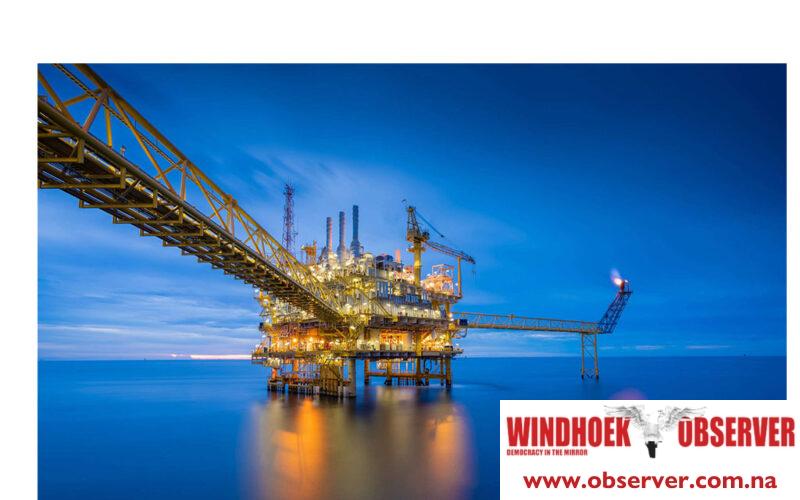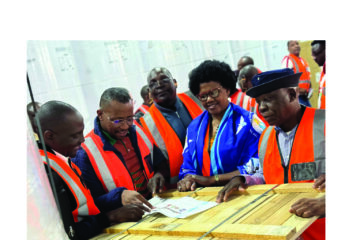Niël Terblanché
Michel Prud’homme Nzouba, an entrepreneur from Gabon, said the departure of the oil and gas giant Shell from Namibia is not good news for the country.
Last week, Shell announced a US$400 million write-down on discoveries made within the license, citing commercial unfeasibility.
“When majors like Shell pull out, perceived risk increases and appetite from other players diminishes. Having said that, there may still be hope for Namibia from other players such as TotalEnergies, who are still to conclude their appraisal work,” said Nzouba on LinkedIn.
According to Nzouba, as some explorers pull out, the country will inherit a wealth of data from these operators.
“If they (Namibians) are smart, they may be able to exploit this data, connect the dots between various blocks and understand their basin better than any operator can on their own,” he said.
He added that to do this, Namibia would need to form a large team of geoscientists and spend on cutting-edge studies—something none of the other African countries have ever done before.
Nzouba is confident that Namibia can do this, given the country’s track record in the mining sector.
“I am convinced that over-reliance on operators at the exploration stage leaves many basins undiscovered. This is particularly true for my country, Gabon. Countries have greater means and potential to carry out “new province exploration.” But it takes courage and risk-taking,” he said.
According to the founder of the Namibian Association for Offshore Oil and Gas Service Providers (NAOGSP), the departure of Shell doesn’t dictate the fate of Namibia’s oil and gas potential.
“This is not the end for our oil and gas ambitions, as many prophets of doom are attempting to portray it. Rather, it is a brutal reminder and eye-opening opportunity regarding the messy reality and unpredictable nature of the risks involved in wildcat and appraisal wells,” he said.
Ipinge views the departure as a catalyst for Namibians and the government to reassess their strategies, advocating for revolutionary approaches and leveraging innovative technology.
He also calls for an urgent setup of onshore infrastructure to make our oil and gas resources work for the country.
“After all, the oil is ours, and our discoveries should empower the Namibian people by uplifting our communities through genuine industrialisation and driving justice for the dejected masses of our people, especially the working class and local entrepreneurs,” he said.
He added that the beneficiation of natural resources means uplifting communities through oil and gas revenue not just lining the pockets of corporate elites and sacrificing Namibians for profits that will be shipped across borders.
“Let’s rise together and prepare ourselves to enjoy the fruits of our commercially viable blocks when the first Final Investment Decision (FID) will be made by any of the operators in the near future,” he said.
Since the announcement, Shell, however, reaffirmed its commitment to exploring Namibia’s offshore resources despite encountering technical and geological challenges in the Petroleum Exploration License (PEL) 39.
Tom Alweendo, the minister of mines and energy, on Friday, confirmed that Shell, alongside its partners Qatar Energy and the Namibia Petroleum Corporation (Namcor), will continue to pursue further exploration opportunities.
Alweendo expressed optimism about the ongoing efforts.
“Investments by companies like Shell signal a strong commitment by leading international oil companies to unlock the full potential of Namibia’s offshore acreage. The Namibian government will continue working with dedicated companies to develop these resources, and our plan for first oil is still on track,” the minister said.
Since the initial discovery at the Graff-1X well in 2022, Shell has drilled eight additional wells in PEL 39, a vast 12,000 km² deep-offshore block located 250 km off Namibia’s coast.
While hydrocarbons have been encountered in several wells, subsurface complexities and reservoir quality issues have posed significant challenges.
In the statement, the minister indicated that the developments in PEL 39 are part of a broader surge in offshore exploration activity in Namibia.
TotalEnergies, for instance, is advancing its multi-well appraisal and exploration campaign in Block 2913B, part of PEL 56, with a Final Investment Decision expected in 2025 and the first oil extraction targeted for 2029.
Similarly, Galp has made significant discoveries in the Mopane complex within PEL 83 and is seeking another partner to develop the field further.
Other major players, including Chevron, Petrobras, and Woodside Energy, are also active in the region.
Chevron recently acquired an 80% stake in PEL 82 in the Walvis Basin, which features extensive seismic data, while Woodside is pursuing opportunities in PEL 87, within the prolific Orange Basin.




